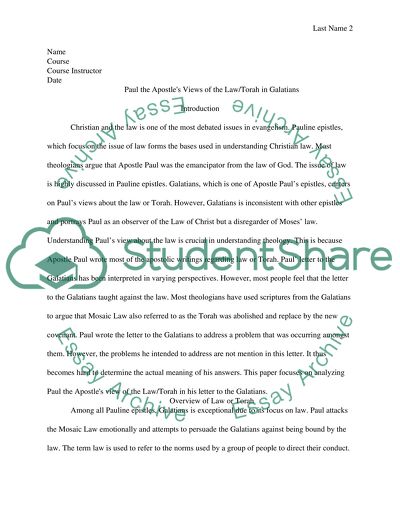Cite this document
(“Paul the Apostle's view of the Law/Torah in Galatians Research Paper”, n.d.)
Retrieved from https://studentshare.org/religion-and-theology/1402544-paul-the-apostle-s-view-of-the-law-torah-in
Retrieved from https://studentshare.org/religion-and-theology/1402544-paul-the-apostle-s-view-of-the-law-torah-in
(Paul the Apostle'S View of the Law/Torah in Galatians Research Paper)
https://studentshare.org/religion-and-theology/1402544-paul-the-apostle-s-view-of-the-law-torah-in.
https://studentshare.org/religion-and-theology/1402544-paul-the-apostle-s-view-of-the-law-torah-in.
“Paul the Apostle'S View of the Law/Torah in Galatians Research Paper”, n.d. https://studentshare.org/religion-and-theology/1402544-paul-the-apostle-s-view-of-the-law-torah-in.


